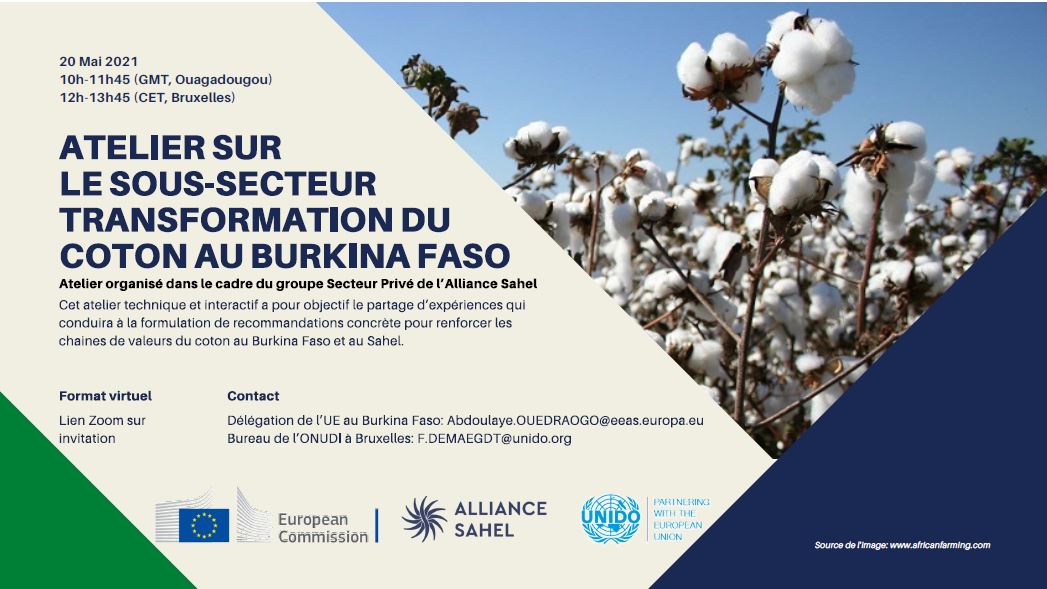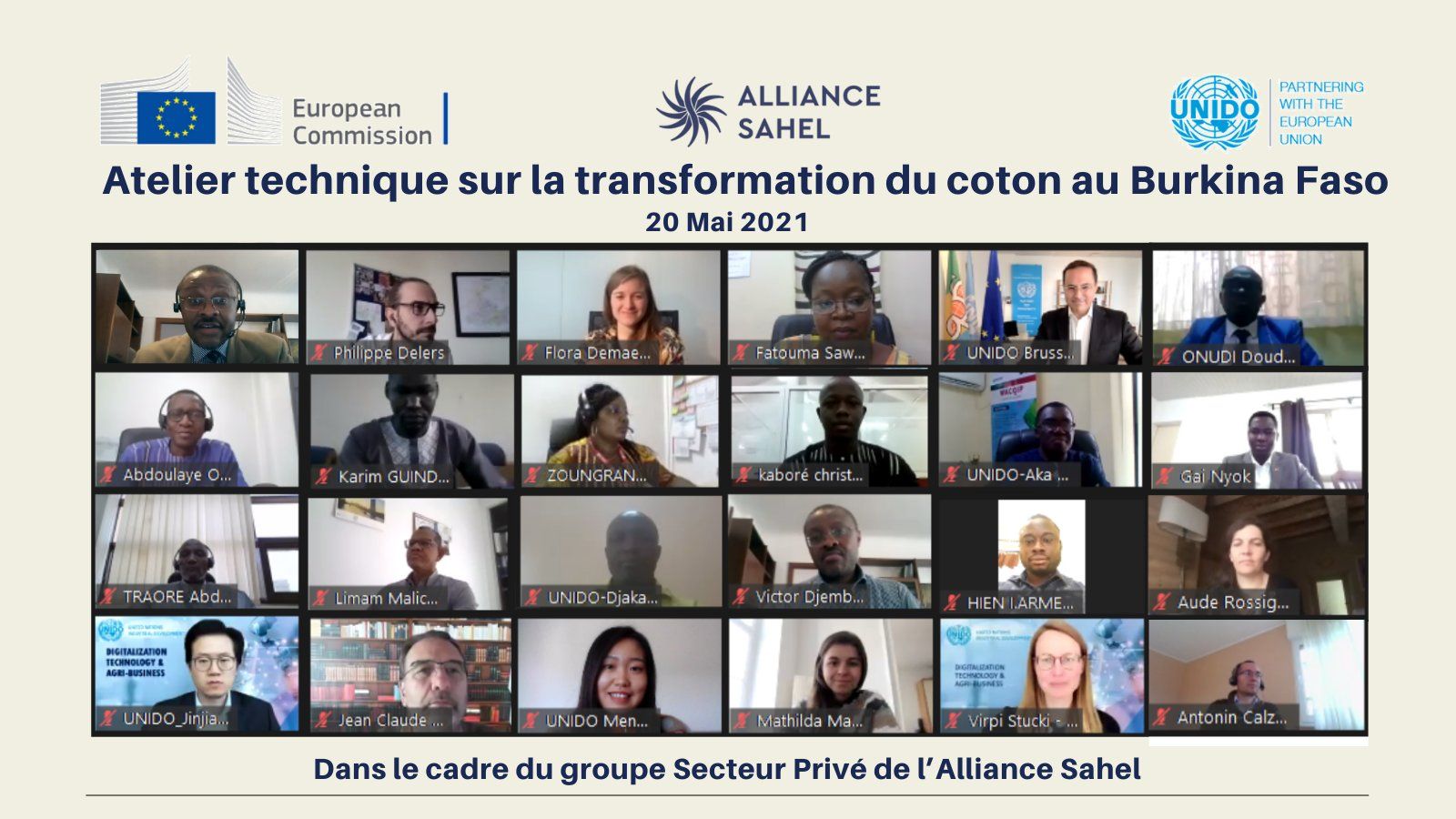A GLIMMER OF HOPE FOR THE WHITE GOLD SECTOR IN BURKINA FASO
Cotton growing is a major pillar of the economy in Burkina Faso. In addition to the processing industry, the textile craft industry makes an important contribution to the local valorisation of cotton. The artisanal cotton processing sub-sector plays a significant role in the fight against poverty through its ability to create jobs and generate income for local stakeholders. In Burkina Faso, 65% of the income of households living in rural areas is derived from the cotton sector. Beyond the cultivation of the cotton plant, several hundred thousand artisans, mostly women, are active in the various branches of the sector, such as spinning, yarn dyeing, weaving, clothing and furniture.

Despite its undeniable potential, Burkina Faso is still unable to fully enjoy the economic and social benefits of growing “white gold”. The barriers to the development of this sector are multiple and can be summed up mainly as a lack of competitivenesś of the cotton/textile sector, low investment in processing and a business environment that is not very conducive to the emergence of companies operating at the level of artisanal or even industrial processing. The COVID-19 crisis has also had a significant impact on the sector, following the overall drop in cotton/textile consumption (by 6.4%) and in the purchase price, leading to increased unemployment.
In order to discuss the realities and challenges of the sector with a view to creating synergies and formulating useful recommendations for the sector, the “private sector” working group of the Sahel Alliance organised a workshop on the cotton sector on 20 May. This event, organised under the leadership of UNIDO and the EU, brought together online more than 50 experts from the member institutions of the Sahel Alliance private sector group, development stakeholders (private, public) active in the cotton sub-sector and the Sahel region. The objective of the virtual meeting was to share resources and technical experiences on cotton value chain development. This workshop, interactive and technical in nature, will lead to the formulation of operational recommendations to stimulate concrete actions on the ground. The aim is to bring to the table good initiatives, chains of competences and marketing that can work.

At the end of the workshop, a first series of recommendations were formulated by the experts to support the development of the cotton sector and to create local jobs in this sector :
- Promote African cotton standards
- Improve the quality of fibre cotton
- Improve the quality of local handicrafts
- Increase local processing capacity
- Importance of linking technical cooperation/capacity building to investment (mobilisation of investments) and environmental issues
- A regional approach is essential: Address regional value chains within the AfCT
- There are two major areas for attracting investment to develop cotton processing: infrastructure development (access to energy) and stimulating the qualification of human resources. In this sense, there is a great need for qualified professional training centres to train in the technical processing of cotton and the production of textile garments
- Need to create clean and local units to manufacture dyeing, in compliance with the environmental standards of the sector
The private sector working group of the Sahel Alliance will pursue its efforts at the end of this technical workshop by formulating recommendations and ensuring their follow-up at all levels to support the cotton sector in the Sahel.
Info and contact:
EU Delegation in Burkina Faso, Abdoulaye.OUEDRAOGO@eeas.europa.eu
UNIDO Office in Brussels: Flora DEMAEGDT F.DEMAEGDT@unido.org

